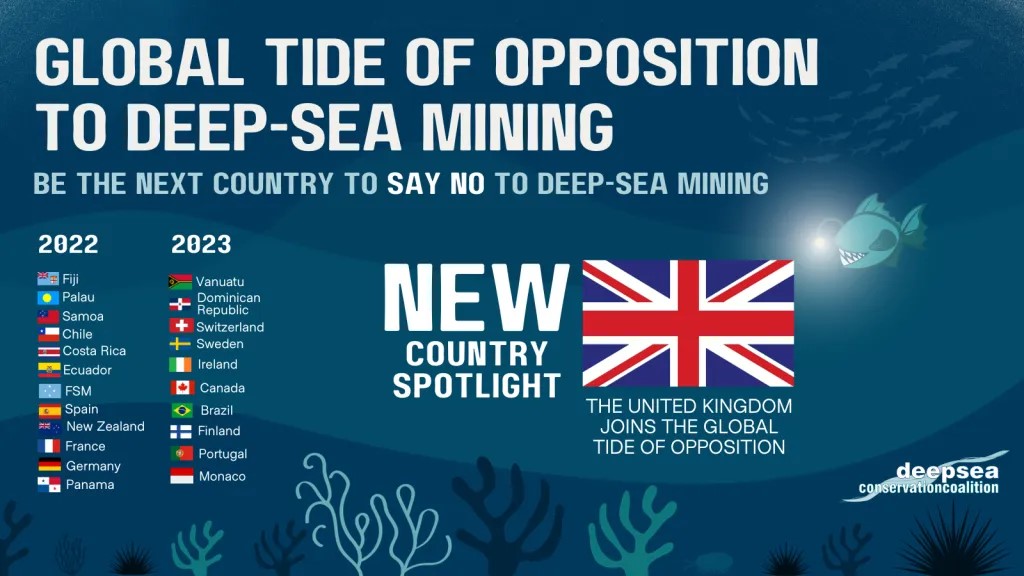Growing support for a moratorium on deep-sea mining
A further International Seabed Authority (ISA) Council meeting closed on November 8th. Government representatives had been negotiating since 30th of October at the ISA in Kingston, Jamaica, discussing a mining code that would open, if adopted, the fragile deep-sea ecosystem to industrial deep-sea mining activities.
Increasing support for a moratorium or a precautionary pause
Despite efforts by a few countries to fast-track the conclusion of the mining code, momentum for a moratorium or a precautionary pause has continued to grow. Most recently, the United Kingdom announced its support for a moratorium, with now a total of 23 countries calling for a moratorium, a precautionary pause or a complete ban on deep-sea mining.
A study published on the closing day of the Council examined the full net cost of deep-sea mining. The study, focused on economic viability, found that DSM may only generate short-term profits for private mining companies while long-term profits are limited, especially due to litigation risks, public opposition, and competition from land-based mining.
Looming over Council members is also the failure to close the two-year legal loophole that could allow a mining application to be approved without regulations in place. The threat of DSM therefore continues to remain prominent, as OceanCare noted elsewhere.
Fate of the deep-sea remains at stake
OceanCare, along with many other organisations, continues to remain convinced that large-scale exploitation activities of the deep seabed would result in severe and irreversible impacts and the loss of biodiversity. As the ISA Council is set to again meet in March 2024 (ISA 29th), several issues remain unresolved, including especially the lack of science and understanding of the deep-sea as well as key transparency shortcomings.
The ocean and its biodiversity is already facing a multitude of threats, including from transboundary pollutants such as underwater noise, plastic pollution and the impacts of climate change. Progressive governments must continue to resist efforts to destroy the deep-sea, which is perhaps one of the most important and extensive habitats on our planet.

